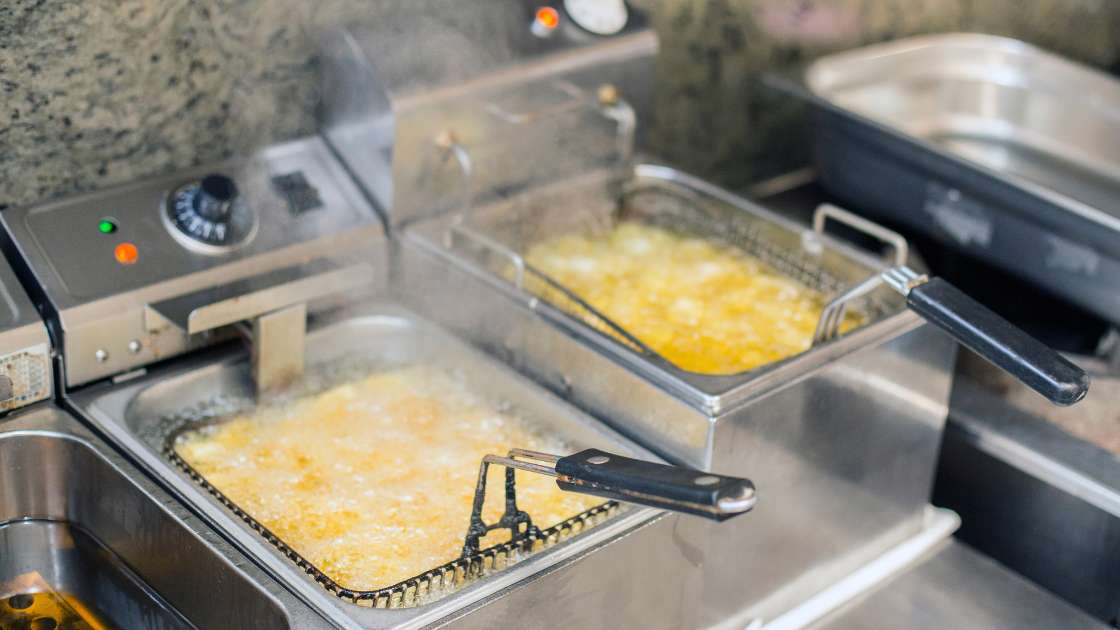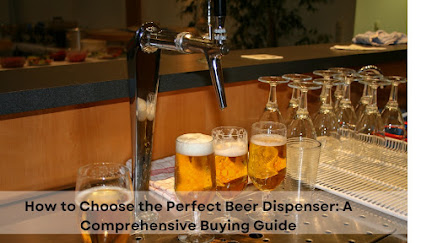Expert Tips and Buying Guide for Commercial Deep Fryers
Are you in the market for a commercial deep fryer? In this comprehensive buying guide, we will provide
you with valuable tips to help you make an informed decision. Whether you own a restaurant, food truck,
or catering business, investing in a high-quality deep fryer is essential for achieving crispy and delicious fried foods. We'll cover everything from the different types of fryers to consider, key features to look for, and important safety considerations. So, let's dive right in and discover the best tips for buying a commercial deep fryer!
Types of Commercial Deep Fryers
When it comes to commercial deep fryers, several types are available on the market. Each type has its advantages and features, so it's crucial to understand the differences before making a purchase. Here are the most common types of commercial deep fryers:
1. Countertop Fryers: These compact fryers are perfect for establishments with limited space. They are portable and easy to clean, making them ideal for smaller operations or as a backup fryer.
2. Floor Fryers: Floor fryers are larger and more powerful than countertop models. They are designed for high-volume frying and are commonly used in large restaurants, cafeterias, and fast-food chains.
3. Tube Fryers: Tube fryers feature multiple tubes immersed in oil, allowing for efficient heat transfer and faster cooking times. They are known for their durability and are often preferred by busy commercial kitchens.
4. Open Pot Fryers: Open pot fryers are versatile and suitable for a wide range of frying tasks. They offer easy access to the cooking area and are popular in establishments that fry various types of foods.
Key Features to Consider
There are several key features to consider to ensure you choose the right commercial deep fryer for your needs. These features can greatly impact the fryer's performance, efficiency, and safety. Let's explore them:
1. Oil Capacity and Cooking Area
A deep fryer's oil capacity and cooking area are crucial factors. The capacity determines the amount of food you can fry at once, while the cooking area dictates the size and shape of the food that can be accommodated. Assess your business's frying needs to determine the appropriate size for your fryer.
2. Temperature Control
Precise temperature control is essential for achieving perfectly cooked fried foods. Look for a deep fryer with adjustable thermostats that allow you to set and maintain the desired frying temperature. This feature ensures consistent results and prevents overcooking or undercooking.
3. Recovery Time
Recovery time refers to the fryer's ability to regain the desired frying temperature after food is added quickly. A shorter recovery time means faster cooking cycles and higher productivity. Consider fryers with rapid recovery systems for improved efficiency.
4. Safety Features
Safety should be a top priority when choosing a commercial deep fryer. Look for features such as automatic shut-off, temperature limiters, and insulated handles to prevent accidents and promote a safe working environment.
5. Filtration System
Maintaining clean frying oil is crucial for achieving high-quality fried foods. A built-in filtration system in a deep fryer helps remove debris and prolong the life of the oil. This feature saves you money and ensures consistent food quality.
6. Energy Efficiency
Energy-efficient fryers can significantly reduce your operational costs over time. Look for fryers with energy-saving features, such as high-efficiency burners or insulation, to minimize energy consumption without compromising performance.
Safety Considerations
Operating a commercial deep fryer comes with inherent risks. Therefore, it's essential to prioritize safety and take the necessary precautions. Here are some important safety considerations to keep in mind:
1. Ventilation
Proper ventilation is crucial when using a deep fryer. Ensure your kitchen has adequate ventilation systems in place to remove excess heat, steam, and fumes. This helps maintain a comfortable and safe working environment.
2. Fire Safety
Deep fryers involve hot oil, which poses a fire hazard. Install fire suppression systems in your kitchen and have fire extinguishers readily available. Train your staff on fire safety procedures, including how to handle oil fires.
3. Maintenance and Cleaning
Regular maintenance and cleaning are essential to keep your deep fryer in optimal condition. Follow the manufacturer's instructions for cleaning and ensure the fryer is free from grease buildup. This helps prevent potential safety issues and extends the fryer's lifespan.
FAQs
1. Q: What is the ideal oil temperature for deep frying?
A: The ideal oil temperature for deep frying typically ranges from 350°F to 375°F (175°C to 190°C). This temperature range ensures that the food cooks evenly and develops a crispy exterior.
2. Q: How often should I change the frying oil in my commercial deep fryer?
A: The frequency of oil changes depends on various factors, such as the type of food being fried and the volume of frying. As a general guideline, it's recommended to change the frying oil every 25-30 frying sessions or every 1-2 weeks.
3. Q: Can I reuse frying oil?
A: Yes, frying oil can be reused multiple times. However, it's important to monitor the quality of the oil. If it develops a rancid odor, dark color, or excessive foaming, it's time to replace it.
4. Q: Are all commercial deep fryers electric?
A: No, commercial deep fryers can be electric or gas-powered. Electric fryers are more common in smaller establishments, while gas fryers are often preferred in high-volume operations due to their faster heating capabilities.
5. Q: Can I use a commercial deep fryer at home?
A: Commercial deep fryers offer superior performance and capacity but are not always suitable for home use due to their size and power requirements. Consider smaller residential deep fryers designed for home kitchens.
6. Q: Are there any alternatives to deep frying?
A: Yes, alternative cooking methods can yield similar results to deep frying. Air frying and oven baking are popular alternatives that use less oil while producing crispy and delicious foods.
Conclusion
Choosing the right commercial deep fryer is essential for achieving excellent frying results and maintaining a safe kitchen environment. You can make an informed purchasing decision by considering the types of fryers available, key features, and important safety considerations.
Main Auction Services, Inc. offers a wide variety of quality, new, and used restaurant equipment, kitchen supplies, appliances, furniture, and decor. Whether you need to buy or sell one piece or the contents of an entire restaurant, restaurant supply Austin is your resource for late-model restaurant, bakery, and bar equipment. Call today to speak with a restaurant equipment specialist.
Main Auction Services, Inc.
1310 West Main Street, Grand Prairie 75050 Texas, USA
972-642-0513




Comments
Post a Comment